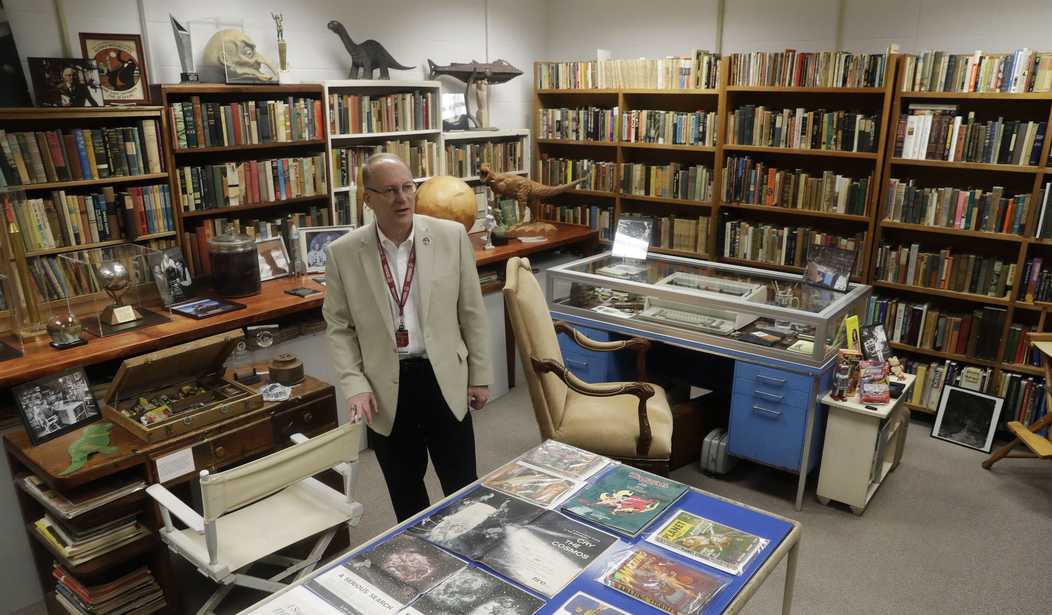Indiana’s State Senate Bill 202, aimed at fostering “intellectual diversity” in higher education, is facing a legal challenge.
The bill, which was signed into law by Gov. Eric Holcomb (R) in March, would establish several reforms in state educational institutions to create a culture of free expression. It is aimed at ensuring that students are exposed to a myriad of different ideas rather than being indoctrinated into leftist ideology.
However, a group of university professors and the American Civil Liberties Union (ACLU) have filed a lawsuit challenging the law.
The plaintiffs argue that the bill violates the First and 14th Amendments. They assert that it will have a chilling effect on free speech and academic freedom.
"SEA 202 puts Indiana’s professors in an untenable position. Through vague language and the threat of harsh sanctions, including termination, the law strips professors of the academic freedom that the Supreme Court has long recognized they have the right to exercise," said ACLU of Indiana attorney Stevie Pactor in a May statement.
Indiana Attorney General Todd Rokita’s office is asking the court to dismiss the challenge. "To protect Indiana students in the classroom, our office this week filed additional arguments to dismiss a lawsuit by four professors who say they should not have to provide a classroom environment of free inquiry, free expression, and intellectual diversity,” Rokita said.
The legislation introduces several provisions aimed at promoting intellectual diversity and protecting free speech in state educational institutions. It mandates that each institution establish diversity committees tasked with reviewing and recommending faculty employment policies related to cultural and intellectual diversity.
The committees would also be tasked with fielding complaints from students if professors or faculty are not fostering an environment of intellectual diversity. Another controversial element of the legislation is that it links criteria for tenure and promotion to promoting free expression and a diversity of ideas.
The debate over the legislation reflects the tension between academic freedom and freedom of expression. The fact is that diversity of thought is sorely needed on many university campuses. The left has dominated higher learning institutions for years. They have used their power to crack down on ideas that oppose progressivism while demonizing those who do not share these beliefs.
By requiring annual reports on intellectual diversity and freedom, the measure would promote transparency and accountability within state educational institutions. This would prevent professors from indoctrinating students instead of educating them.
State-run institutions should never become instruments for political indoctrination. The law would ensure that students are exposed to a wide range of perspectives instead of being fed a strict diet of far-leftist orthodoxy. It can be no wonder that progressives are upset by it.
However, the legislation is not without its flaws or potential pitfalls. For starters, there is always room for administrative overreach. With the state imposing ideological standards, it could undermine the autonomy of the universities and faculty members.
The reporting and compliance requirements could also place a significant administrative burden on these schools. Depending on how extensive they are, it could divert resources away from teaching and research.
The Foundation for Individual Rights and Expression (FIRE) praised parts of the bill but stopped short of fully supporting it due to concerns about its implementation.
For instance, SB 202 prohibits an institution from awarding tenure if a faculty member is:
(1) unlikely to foster a culture of free inquiry, free expression, and intellectual diversity within the institution;
(2) unlikely to expose students to scholarly works from a variety of political or ideological frameworks that may exist within and are applicable to the faculty member’s academic discipline; or
(3) likely, while performing teaching or mentoring duties within the scope of the faculty member’s employment, to subject students to political or ideological views and opinions that are unrelated to the faculty member’s academic discipline or assigned course of instruction.
While intellectual diversity within institutions is desirable, this bill goes too far into regulating academic instruction and contains vague standards for faculty evaluation that administrators or departments could too easily abuse.
The objective of the measure is laudable. Higher learning facilities should not be instruments of political indoctrination. There will likely be more legal challenges, but perhaps these will lead to a measure that protects free expression while preventing overreach.













